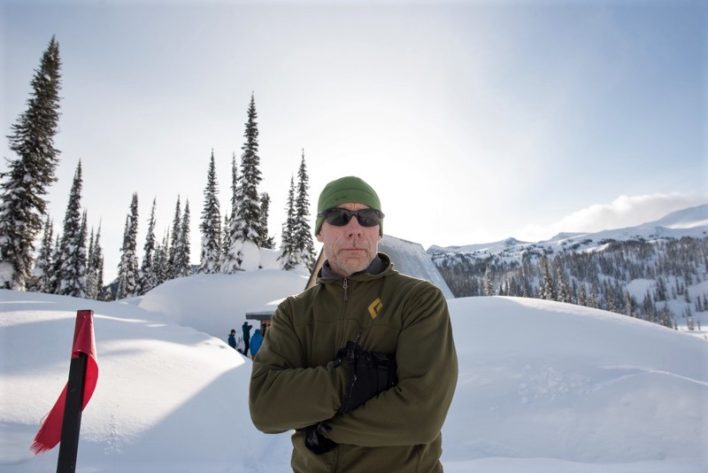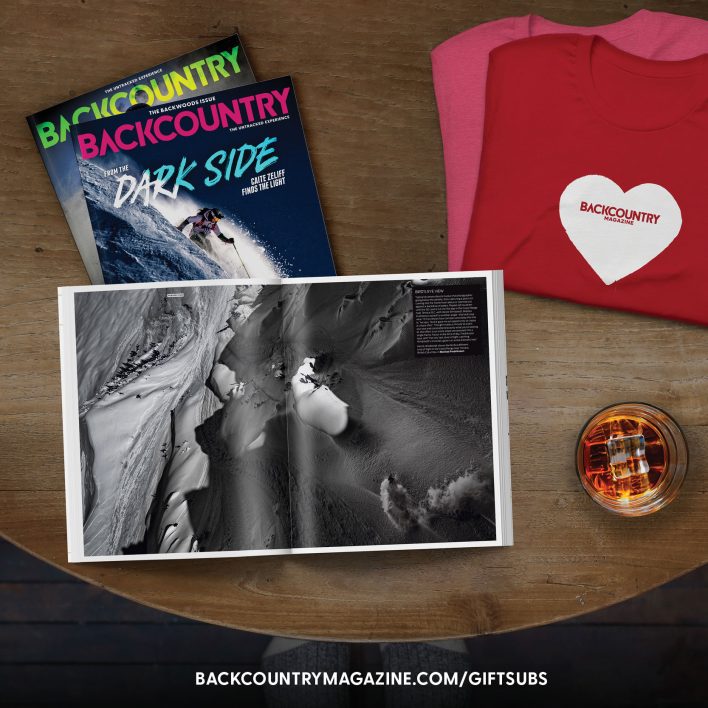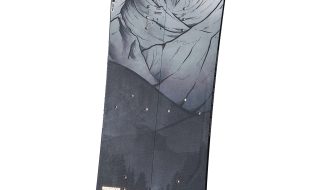The last day you could read a current avalanche forecast for any part of Canada was Monday, March 30. Avalanche Canada went dark after that, shuttering its social media and information-sharing network as well as its forecasting one month early, all in an attempt to discourage backcountry recreation during the COVID-19 pandemic. The virus shut down AvCan’s data streams a few weeks earlier, as well as trailheads, national parks and entire mountain ranges.
Gilles Valade, 58, is the executive director of Avalanche Canada, which forecasts snow conditions and danger for 327,000 square kilometers—or 95 percent of Canada’s total tenure. Response to AvCan’s decision, which followed Avalanche Québec’s closure and spurred others in the West to do the same, tilted positive but also inspired critics. Nevertheless, the organization’s “Don’t go backcountry skiing or snowmobiling” message has been supported by many of Canada’s most prominent adventurers, including Greg Hill, Chris Rubens, Izzy Lynch and Will Gadd.
Valade’s decision echoed through North America and across the world, but it remains opposite from how some U.S. avalanche centers are approaching the pandemic. Many continue to forecast, to Valade’s surprise. Over two interviews conducted a week apart, I asked Valade, a Revelstoke, B.C. resident, why Canada went dark, how he endured his own two-week isolation and why like-minded countries are so divided when it comes to skiing during the pandemic.

Devon O’Neil: Today [March 30] is the last day that Canada will have an avalanche forecast this season. How does that make you feel?
Gilles Valade: I’d say it’s good and bad. The good part is, as a country, we’ve come together and made decisions. They’re not easy and not something we’ve done before. The bad part is there are still people going out there, and they have no information. Excuse my French, but what the fuck are you thinking still going out there with all of this happening?
DO: You gave everyone a week’s notice [before ending your season]. Why not just shut down immediately, like other centers have done?
GV: We didn’t want it to be too sudden. I think we would’ve gotten more pushback if people had things planned or were already in the backcountry if we’d pulled the plug immediately. Parks Canada has been shutting down incrementally also. They asked people not to go into the backcountry, then they shut down physical access, then they stopped their forecasts.
DO: You recently completed your own 14-day self-imposed isolation. What happened?
GV: One of my friends is a heli guide who lives a couple houses down. I went over for a beer on a Friday night. He had done a couple of flights with a client who went home and tested positive. So my buddy told me as soon as he found out and said he was self isolating. I was at the office, and I just dropped everything, grabbed my stuff and went home and didn’t come out until this past Friday. During my isolation, we had the sunniest week in the last six months, so it was quite difficult to not go ski touring, because I could’ve gone out with my friend who was in the same situation. But I made the decision that I’m not going to go out there and make it worse for everybody else in the system. I’m still at home, but now I go for walks or bike rides.
DO: What kind of feedback did AvCan get about its decision to close?
GV: Most of it’s been quite positive. Some people have said some nasty things, but that’s to be expected. I don’t mind being criticized. The season’s over; let’s not try to pretend this isn’t happening. Let’s take a position here and follow through. In every jurisdiction, everybody’s got a right to make their own decision, but I think we looked outside of our own well-being by saying, “OK, this might attract a bit of crap for us, but we’re a part of the solution.” We had some stakeholders say, “You’re doing the wrong thing,” and others were saying, “Great leadership, thanks.” I think it’s a maturity thing, not necessarily from us, but all the people that realize this pandemic is bigger than their need to go backcountry skiing. Like I’ve been telling people, the mountains are not going away. Winter will be back next year. It’s not going to kill you to not ski for another month and a half.
DO: What about someone just going and skiing a 20-degree powder run to clear their head?
GV: Well, I think things evolved from a couple of weeks ago when [the message] was, don’t ski big lines and be conservative so you don’t need a rescue, to now, it’s, don’t even go, because you could twist your knee or get lost or whatever. Plus, with two feet of fresh snow, you can’t even ski down a 20-degree slope. You’d have to pick something steeper. I’ve seen people say, well, it’s very low risk and I’ve been skiing forever. Me too. I’ve been skiing for 45 years. You know how many wrecks I’ve seen on a 20-degree slope? Lots.
DO: When the goal is the same—to keep people safe—why do you think the approaches have been so different for avalanche centers in the U.S. and Canada?
GV: That’s a question we’ve been asking ourselves. I’m not sure. I think we’re more unified as a country, in general. In the last couple of weeks, politics have been pretty much a non-issue with backcountry skiing. Conservatives, liberals, everybody’s gotten on board. Usually we’re pretty similar in terms of what we do here and in the States, but in this case it’s interesting to see the difference. I only have questions, not answers. It would be a good research paper for someone.
DO: How’s the snow in Revelstoke?
GV: We had a big winter. It’s snowing right now. The snow line is about 200 feet above my house. In some places we’ve probably had a couple feet of snow in the last two days. It’s still winter out there, and the skiing would probably be really good. But we’re beyond that. People are getting sick, losing their jobs; people will lose their businesses, their homes. That to me is way more worrisome than that somebody can’t go skiing right now and the skiing would be great. It’s not even on the radar.











yeah, like many of Canada’s most prominent adventurers, including Chris Rubens, Izzy Lynch and Will Gadd aren’t skiing. They’re the same guys that tell us to reduce our carbon footprint then travel all over the world, some of them heli skiing for a living. Our version of Hollywood hypocrites.
Actually Will Gadd is at his home in Canmore.. The others for sure are in Rogers Pass.. As if they can sit home with their kids.. bahahahahahhaha But you are right.. Adventure Hypocrites.
Gilles
It is good to see you have not lost your style. Things are pretty closed down here in eastern Idaho and western Wyoming. Jackson Hole is like a ghost town.
Scott
The problem with going away from home is that you still have to eat, go potty, buy gas, etc., etc., without the ability to stay safe. So, just don’t go.